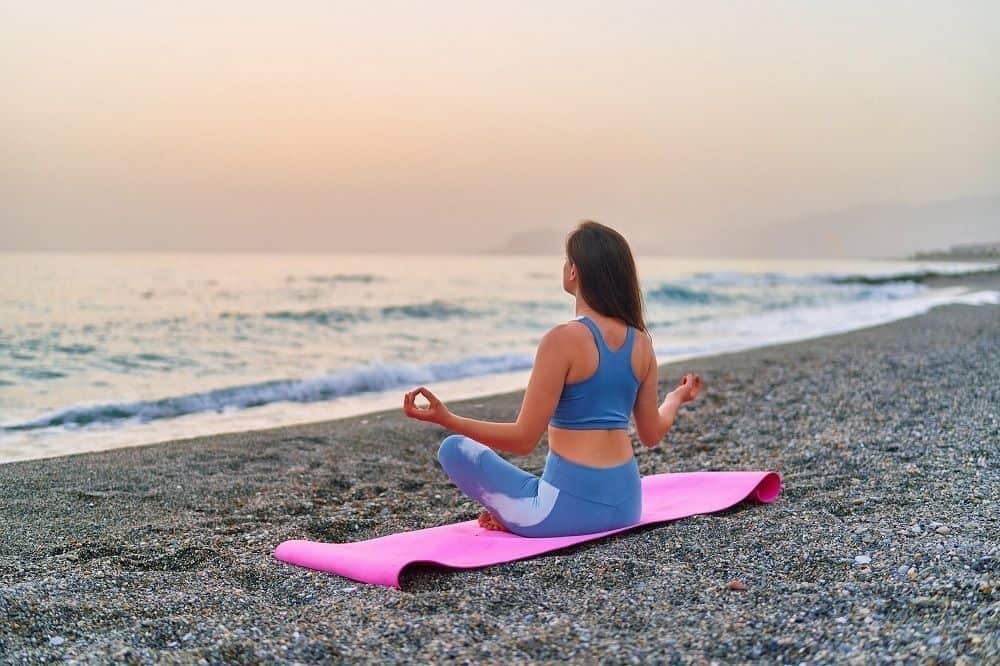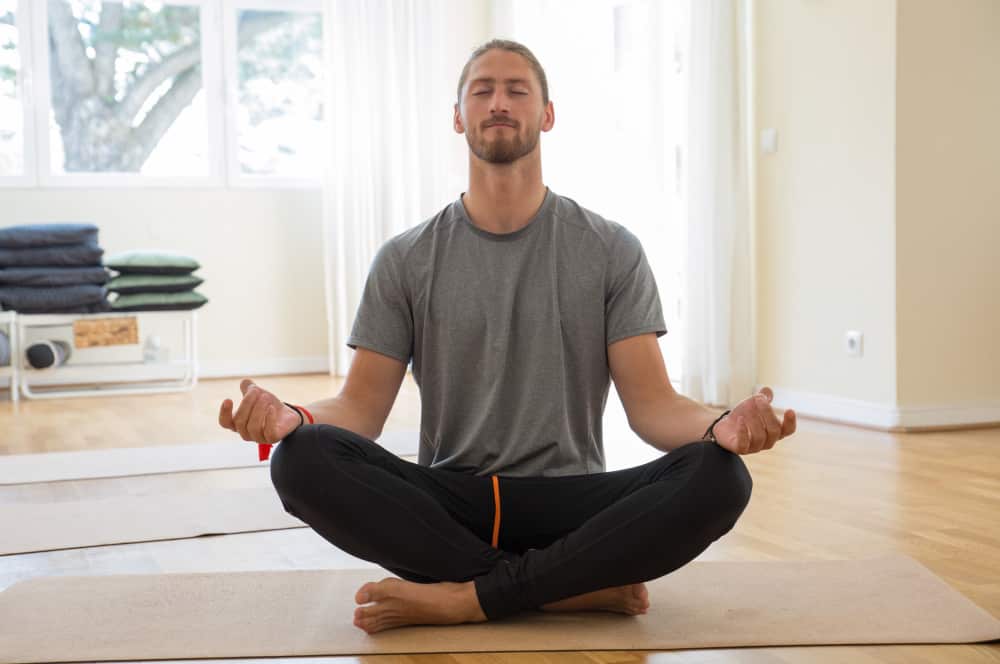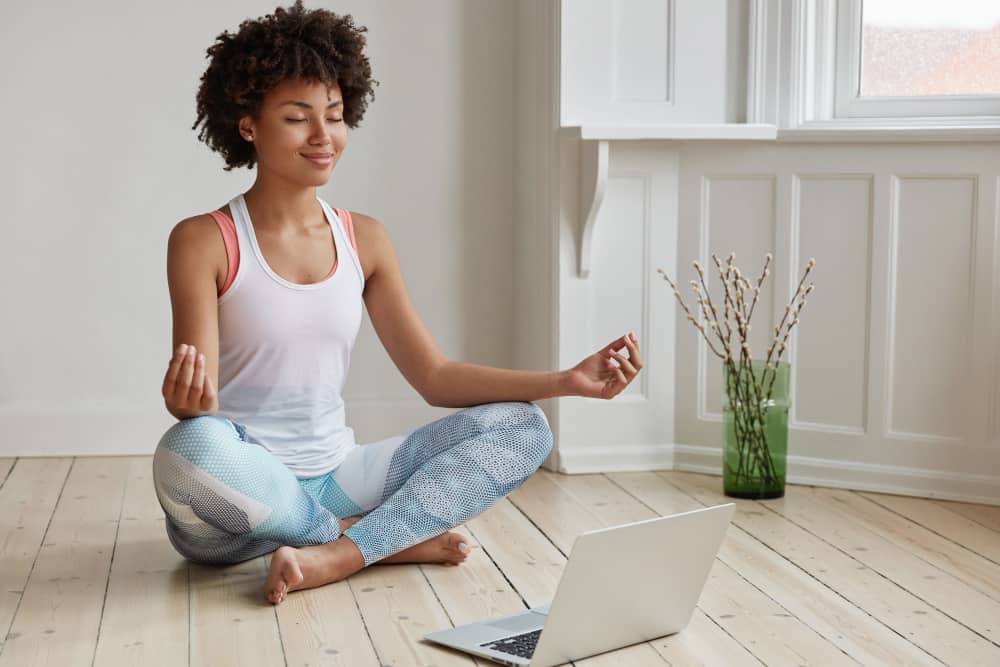If you’re looking to start meditating, congratulations! You’re embarking on a wonderful journey that can improve your mental and physical health in many ways. But where do you start? If you’re new to meditation, it can be tough to know where to start. There are so many different techniques, and it can be overwhelming to decide which one is best for you. That’s why we’ve compiled a list of the best meditation techniques for beginners. Each of these techniques is designed with beginners in mind and can help you learn the basics of meditation.
Today, we will explore the best meditation techniques for beginners and provide some helpful tips on how to get started. We will also discuss some of the benefits of meditation and why it is such a valuable practice. So whether you are a complete beginner or just looking to expand your knowledge, read on for all you need to know about the best meditation techniques for beginners.
Let’s begin by looking at the basics of meditation and how it can help you relax and gain a deeper understanding of yourself.
What is Meditation?
Meditation is an ancient practice that has been used for centuries to reduce stress, improve focus, and promote emotional well-being. It involves sitting in a comfortable position and focusing on your breath or an object such as a candle flame. By allowing your thoughts to come and go without judgment, you can become more aware of the present moment and gain insight into yourself.
Benefits of Meditation for Beginners
Meditation can help you relax and begin to understand yourself. It can also provide many physical and mental health benefits, such as reducing anxiety, improving concentration, and promoting a better sleep pattern. Practicing meditation can also improve your ability to understand and regulate emotions, leading to greater self-awareness and enhanced personal relationships. You may also experience improved physical health, as meditation can help reduce blood pressure and increase immunity to illnesses.
Best Meditation Techniques for Beginners
Now that you know the basics of meditation and its many benefits let’s look at 5 of the best meditation techniques for beginners. Each of these techniques is designed to help you get started in practice and can be used on their own or in combination.
1. Mindful Breathing Meditation

Mindful breathing meditation is the first of the best meditation techniques for beginners. It is simple to learn and can be done anywhere, anytime. This technique involves focusing on your breath and noticing how it feels as you inhale and exhale. It is a great way to become aware of your body and can be used to help you relax.
To practice this meditation:
- Choose a comfortable place to sit or recline in. Make sure you are in a quiet and distraction-free environment.
- Close your eyes and take a few deep breaths, focusing on the sensation of the air passing in and out of your lungs.
- Once you are settled, begin to focus on your breath and count each inhale and exhale.
- If your mind begins to wander, gently guide it back to your breath without judgment.
- Continue for 5-10 minutes or as long as you feel comfortable.
This meditation can also be practiced standing or walking if you prefer. You can use this technique daily to reduce stress and increase relaxation.
Also look at: 10 Ways to Practice Positive Self-Talk in Children: Benefits, FAQs
2. Body Scan Meditation

The body scan meditation is another of the best meditation techniques for beginners. It involves focusing on different body parts and mentally scanning them for tension or discomfort. This can help you become aware of areas of your body that may be holding physical or emotional pain, allowing you to release it. You can practice this meditation lying down or sitting in a comfortable position.
To practice the body scan:
- Begin by closing your eyes and taking some slow, deep breaths.
- Start at the top of your head, and focus on one area at a time, working your way down to your toes.
- As you scan each area, take note of any sensations or feelings that arise – such as tightness or discomfort – without judgment.
- When you reach the end of your body scan, take a few moments to be aware of your entire body in a relaxed state before coming out of the meditation practice.
Body scan meditation can help reduce stress, improve sleep quality, and increase overall body awareness. It can also be practiced regularly to relax and become more mindful of your body.
3. Mindfulness Meditation

Mindfulness meditation is the 3rd great technique for beginners, which involves simply focusing on the present moment with an open mind and heart. This type of meditation encourages non-judgmental observation, allowing us to accept our thoughts and feelings without getting caught up in them. It can be practiced in any position, but sitting is best for more focused meditation practice. By doing this regularly, we can gain more insight into ourselves and develop a greater sense of self-acceptance.
To practice mindfulness meditation:
- Begin by finding a comfortable position and closing your eyes.
- Take some slow, deep breaths to calm your body and mind.
- Focus on the present moment – take note of what you are feeling or sensing, such as physical sensations or sounds around you – without judgment or attachment to those feelings or sensations.
- When your mind wanders (which it will!), bring your attention back to the present moment with gentle awareness before continuing the practice.
- Allow yourself to sit in stillness for as long as you need before slowly bringing yourself out of practice.
4. Guided Meditation

The fourth best meditation technique for beginners is guided meditation. This practice involves following along with a voice or audio recording to help guide you into a meditative state. This can be beneficial for those who are new to meditation and need some extra support in calming their mind. It can also be helpful if you find yourself getting distracted easily while meditating, as the audio will provide something for your mind to focus on. This type of meditation can be done in any position, but it’s best to find a space that is free from distractions.
To practice guided meditation:
- Find a comfortable position and close your eyes.
- Listen to the audio recording as it guides you through your meditation practice. It may provide instructions such as focusing on your breath, visualizing a peaceful landscape, or repeating affirmations.
- Allow yourself to follow the instructions for as long as you need before slowly bringing yourself out of the meditation practice.
Related: Neck Pain Relief Exercises at Home: Causes, Benefits, Prevention
5. Loving-kindness Meditation
The fifth best meditation technique for beginners is loving-kindness or compassion meditation. This involves cultivating feelings of love and kindness towards yourself and others. This type of meditation has been shown to improve focus, connection, and overall well-being.
To do this technique, start by taking a few deep breaths. Then think of someone you love—a family member or best friend—and wish them happiness and peace.
Repeat this for several minutes before turning your attention inward and repeating the exact wishes for yourself. Remember that it’s essential to be patient with yourself during this process; progress may not happen immediately, but it can take time.
To cultivate compassion and understanding, you can also practice loving-kindness toward people who have hurt or wronged you. Ultimately, having an open heart is essential for finding true inner peace and harmony.
Doing this type of meditation can help to cultivate a sense of calm and contentment. With regular practice, loving-kindness meditation can help you to become more mindful and present in your daily life. If done correctly, it will provide invaluable insight into your mental and emotional patterns and help you cope with difficult emotions.
Why is meditation such a valuable practice?
Meditation is a valuable practice because it can help to reduce stress, improve focus and concentration, increase clarity of thought, enhance physical and mental health, and promote spiritual growth. It can also help to reduce negative emotions like anger and anxiety, as well as boost self-awareness and personal insight. Meditation has been proven to cultivate a sense of peace, contentment, and a greater understanding into our own thoughts and feelings.
When practiced regularly, meditation can create positive changes in the brain, such as increased activity in areas responsible for self-control, concentration, and emotional regulation. With practice, it can help to build resilience to stress and enhance well-being overall.
Meditation also encourages mindful living by helping us be more present and connected to the moment. It allows us to step back from our thoughts and feelings, helping us to observe them without judgment. This can provide invaluable insight into our own mental and emotional patterns and allow us to cope with difficult emotions in healthy ways. Meditation can be a powerful tool for finding inner peace and harmony.
What does the Bible say about meditation?
The Bible doesn’t explicitly mention meditation, but some principles can be applied to it. One of the best ways to meditate is to focus on God’s Word. As you read or listen to Scripture, allow yourself to focus on the meaning and message of the text. Ask God to help you understand what He is saying to you. You can also pray as you meditate, asking for guidance and wisdom.
Another principle from the Bible that can be applied to meditation is to focus on God’s character. As you meditate, ask yourself how God has shown Himself to be loving, compassionate, patient, and faithful. Then, consider how you can imitate these qualities in your own life.
Finally, remember that meditation should always be done with humility and reverence. Be willing to submit yourself to God’s guidance and instruction. Meditating on Scripture should not be a way to prove how knowledgeable you are but rather an opportunity to learn more about God and deepen your faith.
Bottom Line:
By using these best meditation techniques for beginners, you can start to reap the rewards of meditation and benefit from its many physical and mental health benefits. With regular practice, you can enjoy a more mindful, peaceful life.
By regularly practicing meditation, you can take control of your mental and physical health, develop a positive outlook on life, and gain a greater understanding into yourself. It is an invaluable tool that can help you to reduce stress and lead a calmer, more balanced life. So don’t hesitate to get started with these best meditation techniques for beginners today!



